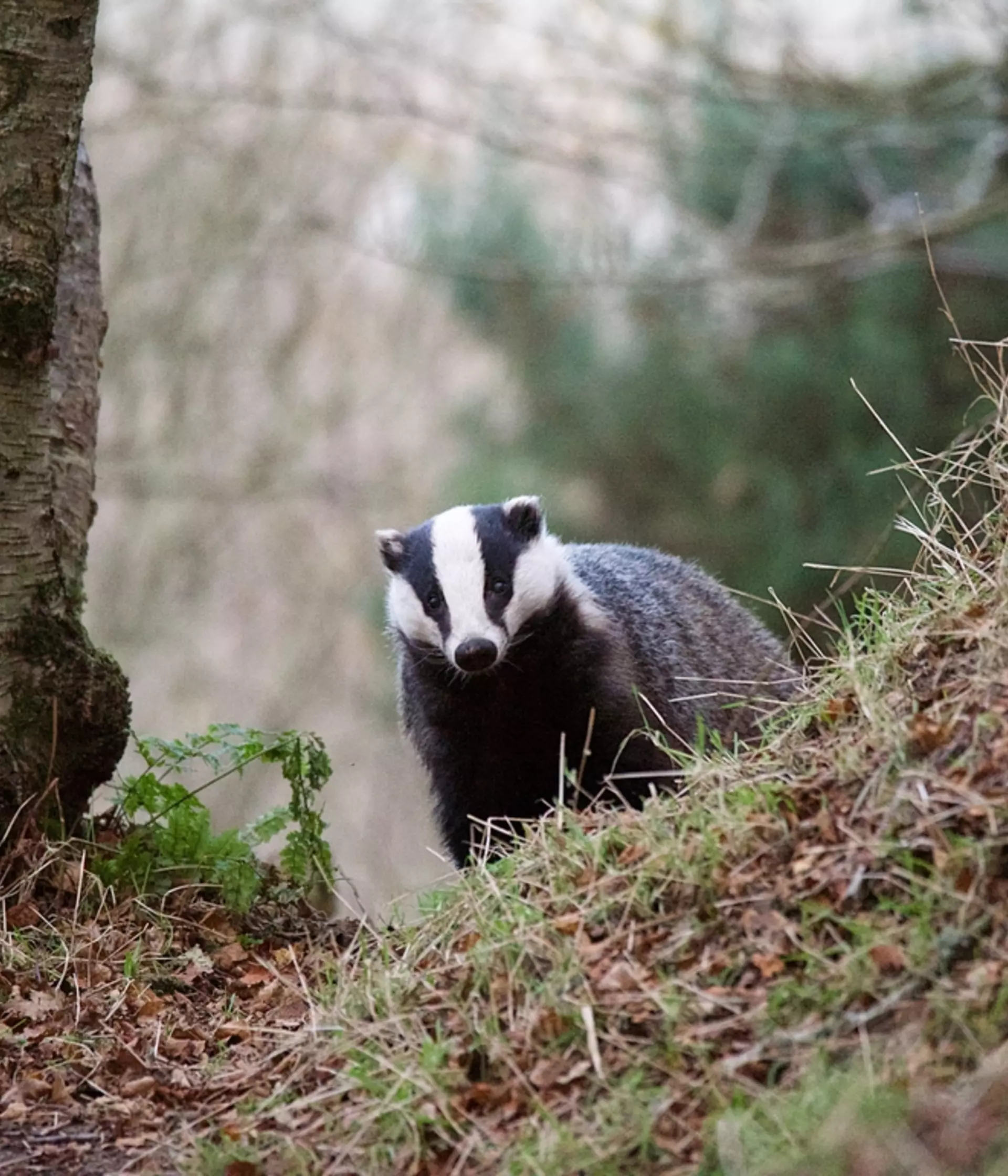Want to do your bit for badgers? Don’t miss our top tips on being more badger friendly in everyday life – and help us make the case against culling by supporting our pioneering wildlife health science.
Badgers are one of the most iconic British wildlife species, beloved by many, yet persecuted by some. With badgers in the UK often sharing the same environments as humans, we look at how to help badgers living alongside people.
Be a badger friendly driver
Road traffic accidents are thought to be the biggest threat to badgers in the UK, with as many as 50,000 badgers being killed in these each year. Motorists can protect badgers (and every other living thing!) by keeping their speed down and staying alert for wildlife at night, dawn and dusk, particularly on country roads. Bear in mind that if you’ve seen one badger crossing the road, other members of its family may be in the vicinity.
Report suspected wildlife crime
Badgers and badger setts are protected by law in the UK. That means it is an offence to kill or injure a badger (without a licence); ill-treat a badger; damage or block access to a badger sett (without a licence) or cause a dog to enter a badger sett. If you suspect a wildlife crime is being committed in the UK, contact your local police force or report it anonymously to Crimestoppers.
Back our badger protection efforts
Since 2013, hundreds of thousands of badgers have been culled in England in an attempt to halt the spread of the disease bovine tuberculosis between badgers and cattle. But we don’t think that the scientific evidence for culling stands up – or that the mass killing of a native species is an acceptable long-term solution to a wildlife health problem.
We’re already working with partners in Cornwall to vaccinate badgers against the disease, and with your support, we could continue to protect these animals long into the future. If you’d like to help us make the case against culling, as well as standing up for species worldwide, please consider supporting our badger protection work by visiting our Zoos or joining our fight for wildlife.
Be part of our badger vaccination project
Our badger vaccination project is operating in Penwith and around the River Cober in west Cornwall, and in mid Cornwall, in regions where badgers haven’t been culled. We’d love to hear from any landowners or farmers in our project areas who are interested in getting badgers on their land vaccinated for free.
Be mindful of dogs around badger holes
If you’re a dog owner, it’s your responsibility to keep your pet under control and on the lead in the vicinity of badger setts. Dogs are often intrigued by the scent of animal burrows, and small breeds, such as terriers, may enter a badger hole. If this happens, remember that it’s an offence to dig them out without getting a licence, and digging may cause tunnels to collapse on your dog and any badgers inside. Stay at the badger hole and keep calling your dog – it will generally find its own way out eventually. Local badger groups or the RSPCA can provide further support.
Be kind to local badgers
As urban areas expand, badgers and humans often find themselves sharing the same spaces. If you have a badger visiting your garden at night, it could be a rare chance to spot the UK’s largest remaining land predator! If you’re bothered by badgers digging up your lawn, try to be tolerant. This kind of foraging occurs mostly in early spring and late autumn, when badgers are looking for grubs and insect larvae, so is likely to be short-lived.
To deter badgers from your garden entirely, you’ll need very secure fencing that extends well underground, or is reinforced with badger-proof mesh underground to prevent them digging underneath it. Electric fences are another option. Bear in mind, though, that badgers are creatures of habit and follow the same paths through their territory for generations. If they’re breaking down or digging underneath fencing to access their usual haunts, it may be easier to leave a gap or install a badger gate to let them go on their way.
Should I feed badgers?
Be wary of feeding badgers regularly – you don’t want to encourage these wild animals to become dependent on food handouts, or spend time in people’s gardens. That said, providing small amounts of supplementary food and fresh water may help badgers get through very long, cold winters or hot, dry summers. As for what to feed badgers, consider canned, cereal-based dog food, fruit, such as apples or pears, or unsalted nuts.
